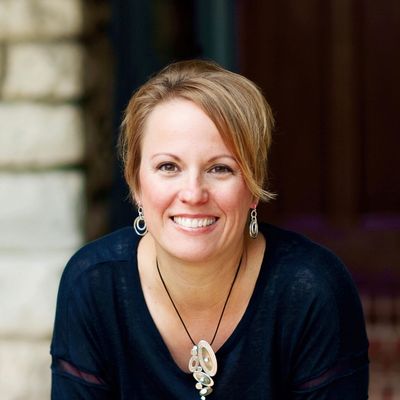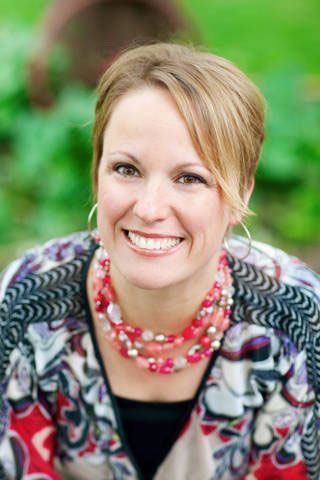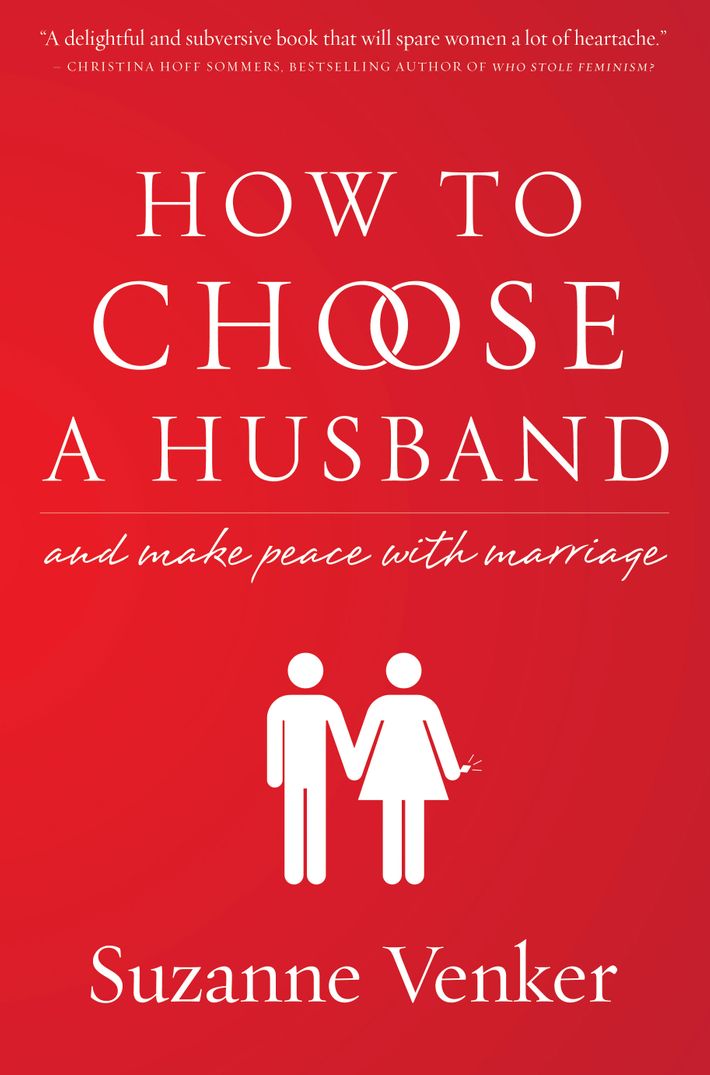
By now, you’ve probably read “The War on Men,” the recent Fox News op-ed that blamed the decline of marriageable males, noted in books like The End of Men, on feminists. Or you’ve at least seen your Facebook friends complain about it. It says that modern women have emasculated, repulsed, and “pissed off” men with their anger and defensiveness — and by rejecting their God-given, nurturing natures. Gulp.
Author Suzanne Venker’s books, 7 Myths of Working Mothers and The Flipside of Feminism (written with anti-feminist gadfly Phyllis Schlafly, who is her aunt), are part of a small but vocal school of anti-feminist conservative thought. It holds that feminism denigrates motherhood (Who raised you, Hilary Rosen?), and it has a deep aversion to whining. And though our feminism loves moms and thinks we should leverage that uncontroversial feeling to get paid maternity leave, paternity leave, and fair wages and rights for domestic workers, Venker and her ilk merit investigation. After all, it was at the Democratic National Convention where Princeton-educated lawyer Michelle Obama said her most important title was “mom-in-chief.”
We reached Venker at home in St. Louis Tuesday morning to discuss the blowback on the op-ed, details on her forthcoming book, and gender essentialism.
Your Fox News op-ed, “The War on Men,” has been shared more than a hundred thousand times on Facebook. How has the reaction been so far?
It’s ridiculously overwhelming; the people come out of the woodwork on social media. I’m disappointed that Fox doesn’t have comments. People were looking for a place to talk about it, and they found my Facebook page. I’ve left it open for them to do their thing there — all the feminists who think I’m the devil — but I stopped reading it. What saddens me is that people get in touch with me privately because they see the conflict, and they don’t want to be involved with it. That’s the stuff the world doesn’t see. Basically I’m the fall guy. I didn’t set out to do that, but here I am.
As the niece of Phyllis Schlafly, the lawyer and activist who put the final nail in the coffin of the Equal Rights Amendment, surely you’re familiar with unhappy feminists. How has she influenced you?
I collaborated with her on the last book, The Flipside of Feminism, kind of end of story. We’re not extremely close. She’s a workaholic — all work and no play — but she and I are on the same page about feminism. I thought it would be good to have a cross section of her work in the seventies in the book, comparing that to what’s going on today. She was the ringleader for an alternative viewpoint to feminism, which then was just starting up. I’m battling it after the “damage” has been done. Things have happened as a result of the sexual revolution which are not good, and the media ignores them. That’s where I come in.

What kind of “damage” has feminism done?
The idea that equality means sameness. Women and men had specific roles, and there were reasons they were locked into those roles. The changes that have occurred since then have allowed or forced people out of those gender roles, mostly because of birth control. But the purpose of feminism is to yank the feminine out of the woman, to give you this faux sense of equality. Just because men and women are equal in worth or value doesn’t mean they’re interchangeable or the same. Feminism taught women to reject marriage and motherhood, go out into the workforce, and compete with men. That has been extremely destructive.
How has women entering the workforce been destructive?
Because it’s going against what is naturally feminine. Feminists robbed you of what you naturally want: to be a wife, a mother, homebound. But that’s only half the pie. Feminism didn’t teach women to have it all; it taught them to have half of it all, the half of the pie that used to belong to men. As if men had it so great and they had better lives.
For example, when I was in college, I was always thinking, What kind of work would work well with being a mother? Everything I did was with the assumption that being a wife and a mother is my core, and I have to work everything in around that. Now women are groomed for the workforce. You don’t go to college to find a husband; you go to find your own single life and your career.
If a woman only wants a career, is it possible that it’s just what she wants? Or has she definitely been indoctrinated by feminists?
It’s absolutely possible that it’s her true self, but it’s not the norm. I don’t have any issues with generalizations, but there are always exceptions to the rule. Obviously there’s a small portion of the world that’s homosexual, that means that 4 percent, 5 percent is not going to be like the rest.
Just this morning, in The Wall Street Journal — I thought the timing was fascinating, in light of my article — Dr. Terri Orbuch, the author of Finding Love Again, says that “because relationships are so important to women, their identity as a wife and mother is central to their being.” It goes on: “Men, for the most part, don’t have this problem. Their identity as a father and a husband is often secondary to their identity as a provider.”
That sounds terrible! If my primary identity were “so-and-so’s girlfriend” but so-and-so’s primary identity weren’t “Kat’s boyfriend,” I’d feel so sad.
It’s not sad. This is what it is: What can women sit around talking about all day? Their relationships. Do you see men sitting around and talking about their girlfriends? No. They need to move their bodies around. That’s why sex, for them, is showing their love. You can’t reverse that. You are a relational person. You are made to love and connect.
What can women do that men can’t do? Have babies. So for men, their way of contributing is to provide for them. You need both to come together to have the complete pie. It’s the yin and yang. It’s a good thing. It’s not a bad thing. But it flies in the face of this faux-argument feminists made to scare women, to get them on their side to think the way they think.

Speaking of men, you wrote this op-ed in promotion of your forthcoming book, How to Choose a Husband. Can you tell us a little bit about the book?
The first part analyzes what’s happened over the past 40 years. The second part is a detox from the feminist messages women have gotten. It’s a twelve-step program. I’m presenting a different road map. The feminist way sacrifices your femininity, the way you’re wired. But if you follow the feminist path — like the Sheryl Sandbergs, the Hanna Rosins — and do nothing from age 22 to 65 but work 65 hours a week, hire a nanny, start a two-income family … I don’t think it makes people happy. By the way, this book is very self-reflective. I myself have had to sort of adapt. That wasn’t because of feminism; my natural way of being was, as you can probably tell, to be strong-willed and opinionated and all that. So I’ve had to temper my own personality to meet my marriage.
You were married once before.
I wouldn’t say what we’re talking about here applies to my first marriage, although there is some connection. After college, I lived in and worked in New York, and I was married for four years, then I moved back to St. Louis, remarried, and had two children. Our issues were geographical. I didn’t want that crazy lifestyle. I wanted a simpler life, a one-income family. I didn’t want to live in New York. But that’s not the whole enchilada.
You often say that families don’t need two incomes.
You really have to step back and ask yourself: Do I want this extra money or control over what goes on at home? If you choose to do it the other way — day care, nannies from maternity leave on — you are going to lose control at home. You cannot have it all. If you don’t get as far as you wanted in your career, who gives a poop? Look at what you got.
Is this arrangement fair for men? If parenting is so great, shouldn’t we let them in on the action?
It’s already happened! Enough already. I grew up with the hands-off father from a different generation. He was old school and didn’t show his love. I don’t see how people cannot see the huge change between him and fathers today, who are wearing Snuglis, and you’ll see them at Target on a Wednesday afternoon. I think male involvement at home is a wonderful thing, but understand that if you try to make them into women completely, you’re never going to be able to have that male provider. This goes back to the dearth of good men. Well, you told them we don’t need you. They heard you, and they stepped back, and when a man doesn’t feel needed, it’s not pretty. Let them be your prince. They want to be your prince. You can have crossover in gender roles, but not to the point that you take away the integral part of what makes us masculine and feminine.
Are there any misconceptions about you or your article floating around out there?
The whole caricature that has been painted about me is just flat-out all wrong. You need to (a) actually have a conversation with me or (b) read my books. Every person that has spoken with me and read my works has said, “Well that sounds really reasonable.” You know Tracy McMillan, who wrote “Why You’re Still Not Married”? It was a blog post that went viral and she then expanded into a book. The reasons were like, “You’re a bitch. You’re a slut.” When I asked her how she dealt with backlash, she said, “The truth shall set you free, but first it will piss you off.”
So those of us saying rude things about your article will eat our tweets when our biological clocks start ticking?
I gave a speech at a college recently, and I was thinking, Oh, you girls are so young. All these 19-, 20-year-olds, they haven’t even lived yet. Just give yourself twenty years. Your life and your priorities will change dramatically when you become a wife and a mother. This baby boomer who was there, she was in her fifties or sixties, she apologized for all the messages she’d sent to young women that were all feminist.
College is expensive. If my nature’s going to tell me to be a wife and mom one of these days, should I even bother going?
College is an education you have for life, if you plan and map out your life accordingly. You can have children right away and a career later. You have a lot of time — women live longer than ever. Look at the people who are in politics who raised their kids before running for office. It’s hard for young people to think that far ahead, but you have so much time. You don’t have to do it all at once.




